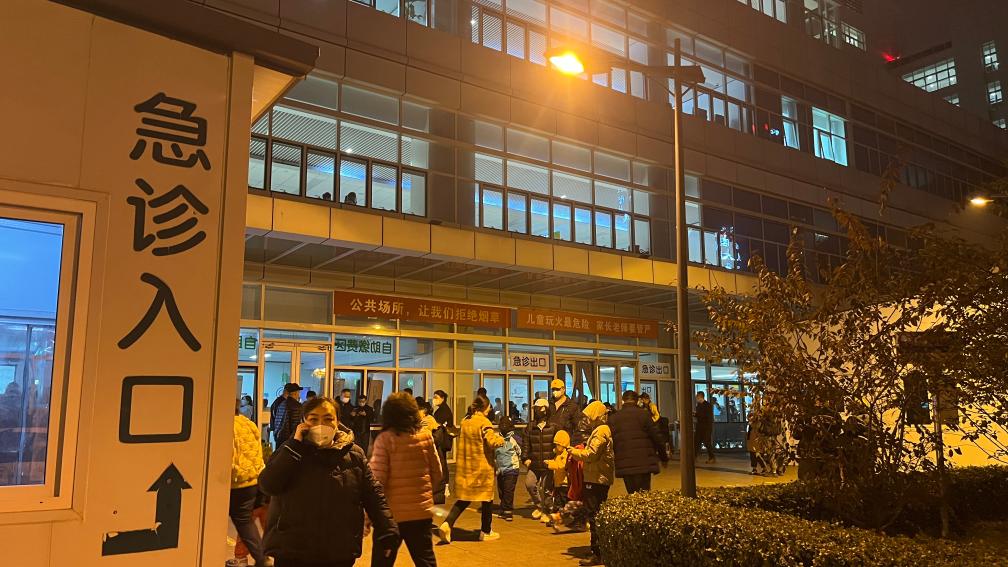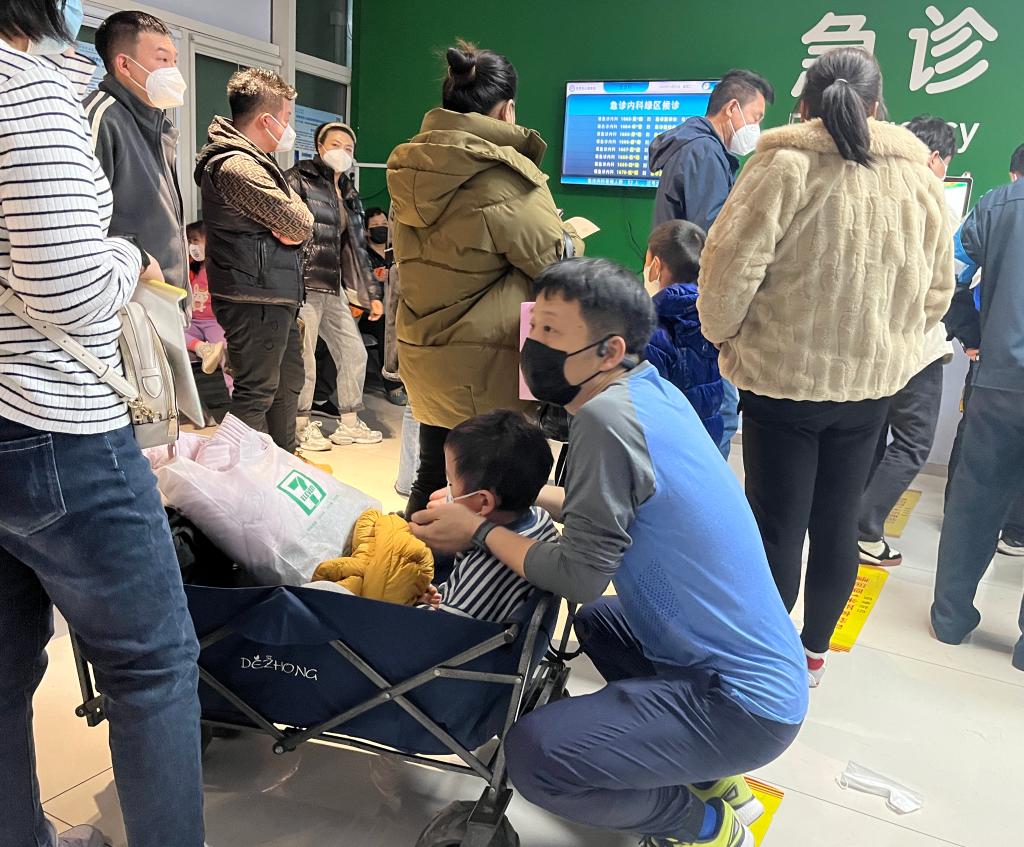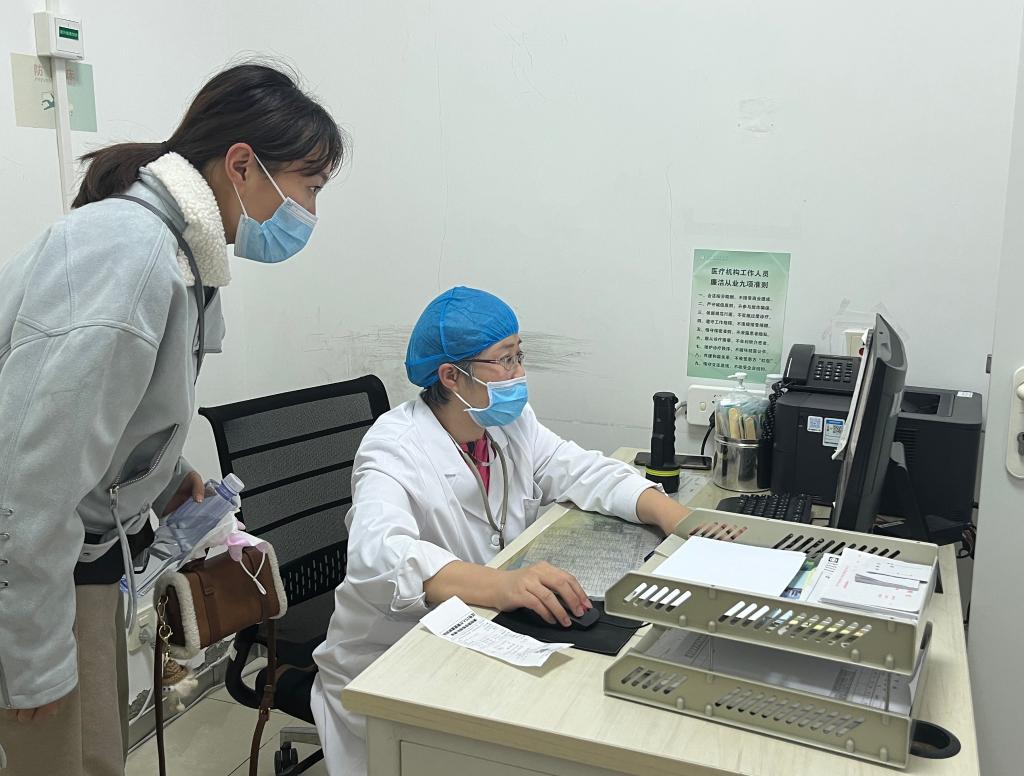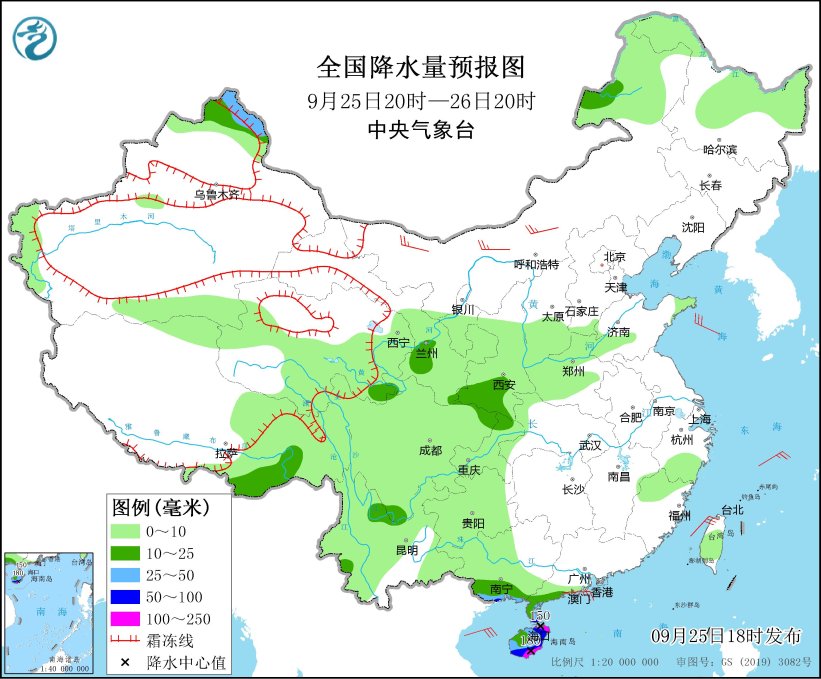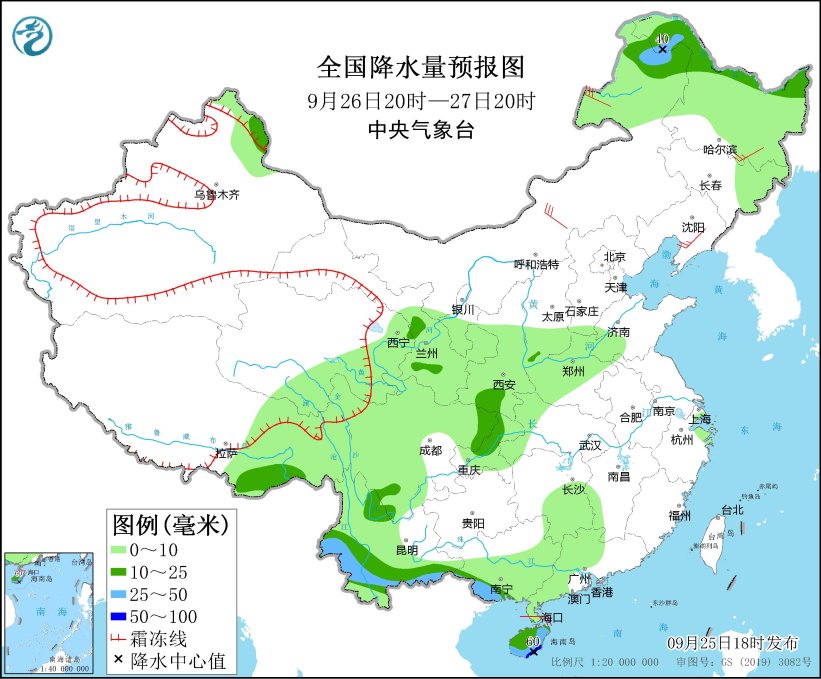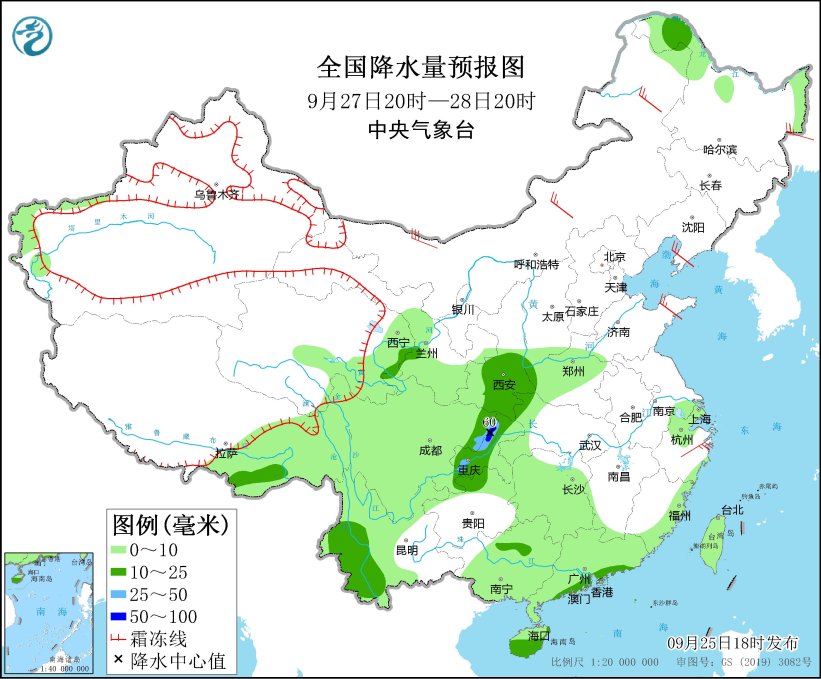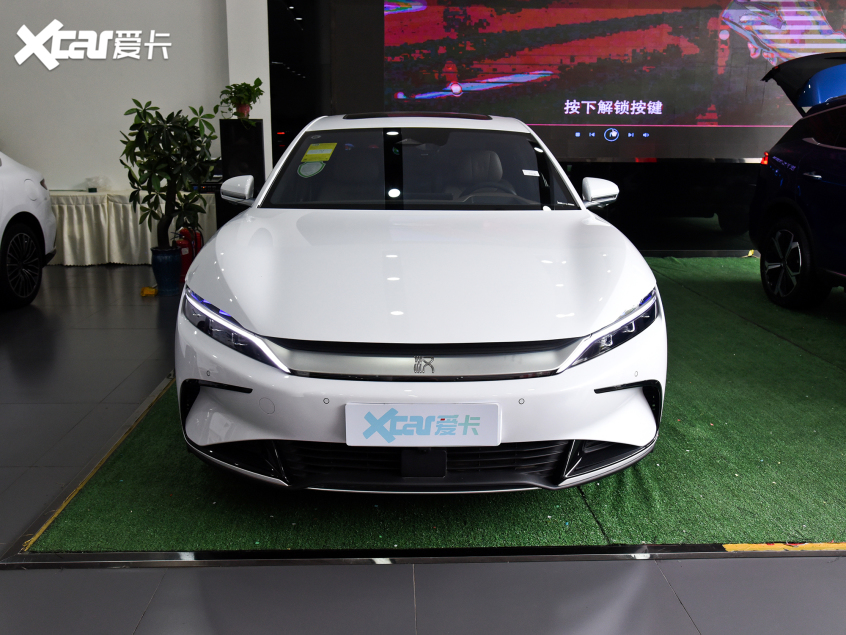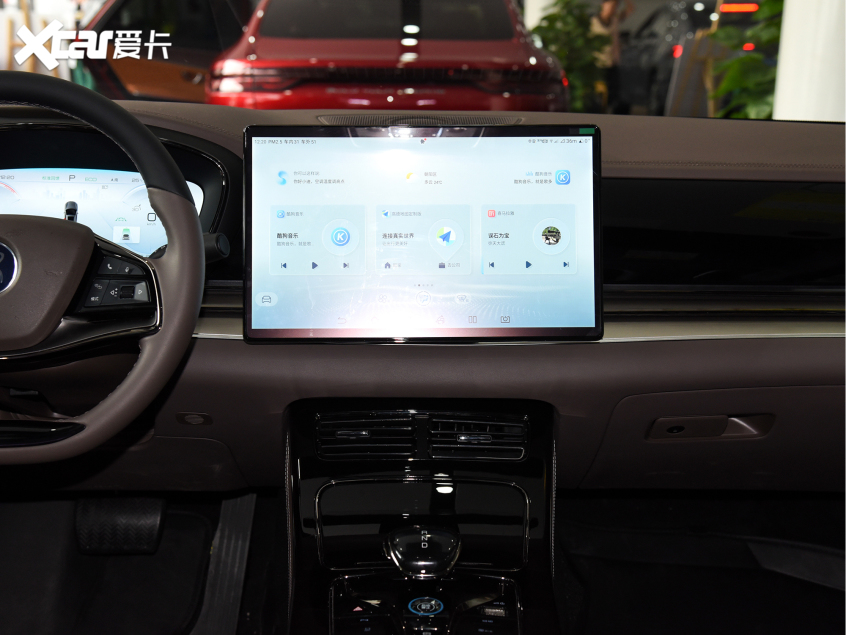
On December 19, Tianjin, several citizens walked into a community to buy and raise their own points.
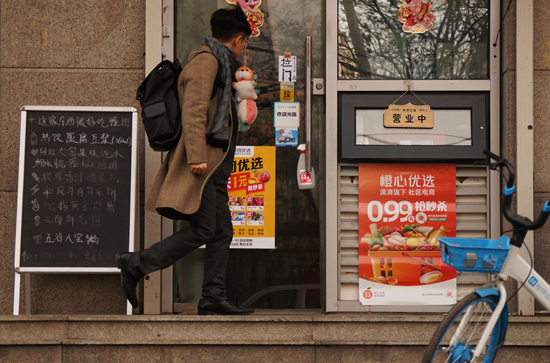
On December 9, Tianjin, a citizen walked by the poster of community group purchase.
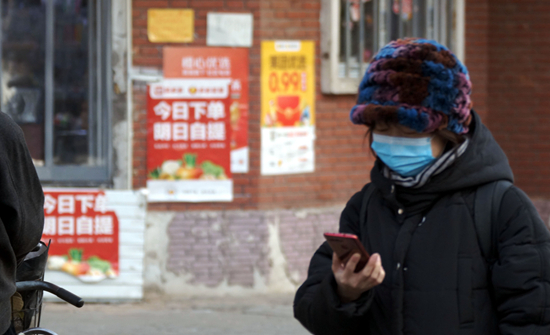
On December 19th, in Tianjin, a citizen with a mobile phone walked by the community group purchase poster in front of the supermarket.
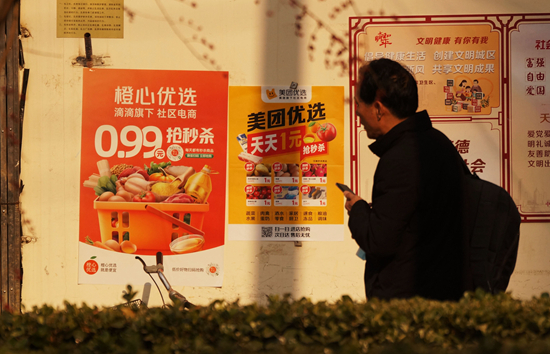
On December 9, Tianjin, a citizen of Heping District was reading a poster of community group purchase.
The battle for Internet companies and vegetable markets continues. When the Internet giants began to enter the community group purchase, the advertisements in the community WeChat group and the coupons in the mobile App replaced the familiar shouts and bargains in the vegetable market. People only need to pre-order on their mobile phones in advance, and the goods will arrive at the pick-up point selected by customers the next day.
In the first month when some Internet companies started to do community group buying, the number of Kaesong companies reached 120. At the end of November, an Internet giant announced that its community group buying has covered 200 cities, and opened stores in 36 cities on the most day.
Here, some people found that the barbecue grill with the original price of tens of yuan can be bought for only two yuan, and some people once bought hawthorn at a penny a catty, eggs at fifty cents a catty, and oranges at a dollar a catty.
After the rise of community group buying, some customers reduced the frequency of going to vegetable markets and supermarkets. However, the low-priced goods on the community group buying platform have also aroused many people’s vigilance. Many brands, such as Wei Long, Xiangpiaopiao, and Radar Battery, issued notices prohibiting dealers from supplying to community group buying platforms. Some wholesalers are worried about losing traditional supermarket users and are unwilling to supply hot-selling products to community group buying platforms. Some netizens are also worried that the Internet will attract customers with low-priced goods, which will take away the livelihood of vegetable sellers.
On December 22nd, the General Administration of Market Supervision and the Ministry of Commerce held an administrative guidance meeting to regulate the order of community group buying. This meeting, attended by six Internet platform companies, including Ali, Tencent, JD.COM, Meituan, Pinduoduo and Didi, requires Internet platform companies to strictly abide by the "Nine No’s". Including, Internet platforms must not be dumped at low prices, abuse their independent pricing power, predatory pricing without justifiable reasons, use data advantages to "kill", and sell fake and shoddy goods.
one
The battle for the entrance of the vegetable market began in the second half of 2020.
A full-time "team leader" (sponsor of community group buying) in Chengdu has participated in at least 6 community group buying platforms. He observed that whenever a new platform enters, large subsidies will always be distributed, and some even send fruits, salt and napkins for free. He studies coupons regularly distributed by various platforms and recommends the most economical platform to customers every day. His highest sales record is that more than 500 people place orders a day.
After the customer places an order, the Internet platform transports the goods to his own pick-up point. He wants to inform customers and get the goods in time. For each order, the head of the team can get a commission of 10%. On the day of the most sales, the full-time head got a commission of 1500 yuan.
Since bike-sharing, take-out and online car rental, community group buying has become a new round of "price war" battlefield. In addition to the price, the head of the team who is good at managing interpersonal relationships is a "weapon" that Internet companies must compete for.
There is a residential building in Jinan City, Shandong Province, and there are 10 heads. The owner teases that "everyone can buy according to the floor". On Red Scarf Road, Shantou City, Guangdong Province, when customers opened a community group-buying App on December 14th, they automatically matched one self-promotion point. Four days later, 28 self-promotion points appeared on this 1.2km long road.
A community supermarket owner in Baotou, Inner Mongolia Autonomous Region, said that at one time he had to greet four or five salesmen from different platforms every day and persuade him to become the head of the team. He didn’t join three of the Internet platforms — — He is worried that customers will flow to the other two supermarkets.
The rural market has also become a battleground for Internet companies. As of December 21st, the preferred business coverage of the community group buying platform includes 15 provinces, 175 prefecture-level cities, more than 1,400 counties and cities, more than 5,100 townships and more than 42,000 villages.
A villager who opened a grocery store in the Dragon Boat Community of Miluo City, Yueyang City, Hunan Province for more than 20 years told the reporter of Zhongqingbao Zhongqingwang that before 2018, she went out at six or seven every morning, went to the vegetable market to buy food and brought it back to the grocery store for sale. The vegetable market in the town is 26 minutes’ walk from the Dragon Boat Community. She recalled that the old people who cook at home in the village can’t walk long distances and can’t ride motorcycles. They have to ask their relatives and friends to go to the vegetable market once a week and store all the dishes in the refrigerator.
After the son-in-law taught her to use the community group buying platform, she became the head of the team. During the epidemic, she can receive more than 200 orders every day. Nowadays, an elderly person who lives alone asks her to place an order to buy fresh fruits and vegetables every day, and she delivers them to the door. She also bought some northern fruit on the platform, which has never appeared in the vegetable market in Miluo city.
An old couple in Shantou city didn’t even understand the commission of the head of the delegation. The advertisement selected by the US delegation has been posted at the door of their grocery store. The son offered to help them apply to be the head of the team. Since then, this "no business" grocery store has welcomed more guests.
2
When the Internet comes, business comes. Mayang Miao Autonomous County, Huaihua City, Hunan Province, which is rich in candied oranges and yellow peaches, once had unsalable fruits due to traffic jams. The person in charge of a local agricultural product sales company said that after the community group buying platform purchased goods from their company, the sales volume of the company’s sugar orange was three times that of the previous one, which became an explosion on the platform.
But the Internet brings more than just traffic. Changsha, Hunan Province is an important city in the community group buying war. This city, with long-term development and high penetration rate of community group buying, has attracted many Internet platforms to enter and rob customers. In Jinshang Fresh Market in Yuelu District, Changsha City, a vegetable vendor told the reporter of Zhongqingbao Zhongqingwang that the "price war" on multiple Internet platforms obviously affected her business. In the past month, her daily turnover has been reduced from 2000 yuan to 300 yuan.
Previously, there were few community group buying platforms in Changsha, and the platform pricing was high, which had little impact on her business. But now, a customer told her that she had bought a catty of potatoes and a catty of carrots from 0.9 yuan on the Internet. But the wholesale price she bought back from the wholesale market, the lowest price of potatoes is 1.6 yuan per catty, and carrots are 1.3 yuan per catty. Due to the decrease in passenger flow, her collection time was extended from 5 pm to 9 pm, but the sales volume still did not increase.
The vegetable vendor runs a 6-square-meter food stall in the market and provides vegetables to restaurants for a long time. Once, a restaurant owner complained that the epidemic had hit the restaurant business. He hopes to reduce costs and buy ingredients from the Internet platform. "I will buy your goods when you are about the same price as the platform." Previously, she supplied more than a dozen restaurants. After the "price war" of the group buying platform began, only six restaurants continued to cooperate with her.
There used to be traffic jams in the wholesale market where she often went, but now the traffic is smooth. When the wholesaler saw her coming to purchase goods, she was more enthusiastic than before and hoped that she would buy more. But in order to reduce the loss of inventory, she began to choose storage-resistant vegetables such as potatoes and radishes when purchasing goods. At her food stall, there used to be nearly 100 kinds of single items for customers to choose from, but now there are only more than 30 kinds left.
While waiting for customers to come to the door, she sat with the vendors next to her and sighed. She didn’t tell her son who went to college and her parents who lived in her hometown about these situations. In order to continue to support the elderly and small families, this woman with junior high school education decided that after the Spring Festival next year, her husband would deliver takeout food and she would work as a cleaner in a restaurant.
It is difficult to count how many people’s livelihood will be affected by internet companies in this battle. In some areas where community group buying has just developed, there are vendors selling fresh pork. Seeing that only frozen pork is on the platform, and only pork belly and pork belly are available for selection, they think that community group buying will take a long time to develop, which will affect his livelihood. Others insist that customers who buy fruit in their own shops know more about quality and do not overlap with Internet users.
Comparatively speaking, supermarket owners are more sensitive to community group buying than vegetable vendors. The owner of a community supermarket in Baotou believes that the quality, type and place of origin of fresh food affect the final price, while the prices of goods sold in supermarkets are more transparent and unified, which is more disadvantageous in the "price war".
The supermarket owner told the reporter of China Youth Daily and China Youth Network to take a box of milk of a certain brand as an example. The purchase price of the supermarket is 51 yuan, and the lowest promotion price of the supermarket is 53 yuan, but the group purchase price of the community group purchase platform is 44 yuan. Half a year ago, the supermarket could sell almost 10 cases of this milk every day. Now, it only sells four or five cases a week.
Potato chips have a similar experience. The ex-factory price of a certain brand of potato chips in 5 yuan is a barrel in 8 yuan, and the dealers and supermarkets each earn 1.5 yuan. But on the community group buying platform, this potato chip is only sold in 3 yuan. The supermarket owner explained, "If the snacks expire, the dealers need to transfer the goods and recycle the snacks from the supermarket, and the group buying platform directly connects with consumers, so there is no need to worry about the risk of expiration."
This husband-and-wife community supermarket has witnessed a decline in the number of customers, the number of new customers and the operating income for six consecutive months. The boss chose to take off non-staple food and fruit.
three
More and more people realize that abnormally low-priced goods will bring new problems.
A factory that produces spices prohibits distributors from supplying to the community group buying platform. The person in charge said in an interview with Zhongqing Daily and Zhongqing.com that in the past six months, the factory has received complaints from partners all over the country, saying that the pricing of spices sold by the community group buying platform is too low, which disrupts the original market and leads to chaotic supply.
When a snack wholesaler in Baotou met with his peers, the topic could not be avoided by group buying in the community. He believes that every wholesaler who supplies the platform can make money, but this way of making money is not sustainable. After the platform grows, it will directly bypass the wholesaler and pick up the goods from the production factory.
He supplies six small supermarkets near a school in Baotou. These six small supermarkets are going to boycott the community group buying platform and refuse to be the head of the group. The reason is that although the head of the team can get 10% of the sales, it affects the normal sales of the supermarket. If customers buy goods in the supermarket, the supermarket can earn 15%, which is more than the head of the team. The wholesaler persuaded the supermarket to follow the crowd. He was worried that if the stationery store and washing shop near the supermarket became self-promotion points, it would distract the people in the supermarket.
Due to the different development of community group buying in different places, the quality of low-priced goods on the platform is different. In rural Hunan, users can buy fresh fish in vacuum packaging, while in Baotou city, where the development of community group buying is slow, some users have bought fruits and vegetables that are not heavy enough.
A customer in Baotou once spent 5.68 yuan to buy three crisp, sweet and juicy Xinjiang Aksu rock candy apples, which were called "sweeter than first love". The apple that can actually be reached is only the size of an ordinary lemon, and the user asks for a refund. The head of the team felt it was a pity to throw it away. After eating a few mouthfuls, he found that it was not a rock candy apple promoted by the platform.
Almost all participants realize that the subsidy war of community group buying will not last long. In mid-December, several heads of Chengdu received the price adjustment notice issued by Orange Heart, a community group buying platform under Didi, saying that the commodity prices would be adjusted to ensure the sound development of the community group buying industry.
Nearly 70 Chengdu heads analyzed the latest policies and trends of each Internet platform in the WeChat group. What the heads of delegations are most concerned about is "de-delegation". According to the analysis of the team leader, if the community group buying platform starts to arrange delivery for riders or open physical stores in the future, the usefulness of the team leader will become smaller and smaller.
He has a deep sense of urgency: "We have no initiative, and everything is in the hands of the platform." The way out of his plan is to find good quality fresh food from major platforms and put it on the group buying platform he set up.
However, community group buying has not slowed down the pace of development because of being questioned and criticized. On the contrary, more companies are interested in testing the water on this track. A senior head of Chengdu said that two new Internet giants are preparing to start community group buying business, and their salesmen recently invited him to join the platform.
Community group buying first appeared in 2015. In 2019, a number of community group buying platforms encountered business crisis, some platforms withdrew their stations and laid off employees in many places, and some platforms chose to merge. The consensus in the industry is that the epidemic has boosted the development of community group buying. According to media reports, during the epidemic, the orders of Xingsheng Preferred in Wuhan increased by dozens of times; Some platforms cover thousands of communities in Wuhan, with more than 350,000 active users. To this end, the Wuhan Municipal Bureau of Commerce also coordinated buses and postal vehicles to transport goods purchased by the community.
A company developing community group buying said that the epidemic in 2020 prompted the company to make up its mind to develop community e-commerce. The company found the potential of community group buying model from multiple dimensions: agricultural products are unsalable, farmers can’t buy cheap and good things; Some urban residents’ demand for food has not been met; It is difficult to travel in extreme weather, and the vegetable market is far from residential areas.
In the summer of 2020, a number of Internet platforms entered the community for group purchase. In June, the orange heart optimization applet was officially put into operation. In July, Meituan launched Meituan Optimization, focusing on the sinking market. In August, Pinduoduo’s buy more food applet was put into trial operation.
It is foreseeable that this silent vegetable market will continue to be noisy. Encouraged by the salesman, the group of stay-at-home mothers also joined the team leader. New users are trying to place orders on the Internet. New cities appear on the map of community group buying.
At the same time, relevant rules have been introduced one after another. On the 22nd, a new regulation of "Nine No’s" for community group buying was introduced. Prior to this, on November 10th, the State Administration of Market Supervision published the Anti-monopoly Guide on Platform Economy (Draft for Comment), which mentioned that the restrictions imposed by platform operators through incentives such as subsidies, discounts, concessions and traffic resources support may affect the interests of platform operators, consumers and society.
According to media reports, on December 9, Nanjing Municipal Market Supervision Administration took the lead in issuing the Notice on Compliance Management of E-commerce "Community Group Purchase of Dishes", requiring the head of the group purchase of dishes in the community to register the corresponding market subject as appropriate, and the platform operator shall not dump at a low price below the cost, crowding out competitors to monopolize the market and disrupting the normal business order.
In an interview with the reporter of China Youth Daily and China Youth Network, a staff member of the community group buying platform also believed that the development of community group buying should be gradual, which would not seriously affect the livelihood of small business hawkers, but also create many jobs at the same time. The ongoing price war has destroyed the balance of the ecological chain. He can’t predict when this price war will end, "short is half a year, medium is one year, and long may be three years."
(The pictures in this article are all courtesy of vision china. Zhongqing Daily, Zhongqing Net Trainee Reporter Wei Wei)
